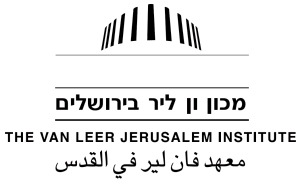Dorit Rabinyan’s third novel about a stormy love between an Israeli woman and a Palestinian man became a bestseller when Israel’s Education Minister banned it from high school required reading lists. What was so threatening about it to the Minister, or to Israel in general? Was she advocating assimilation, humanizing and individualizing the other, or just writing about two young people in love? One of Israel’s top novelists discusses her controversial book “All The Rivers,” and the autobiographical experiences behind it.


Sponsors

This season of the Tel Aviv Review is made possible by The Van Leer Jerusalem Institute, which promotes humanistic, democratic, and liberal values in the social discourse in Israel.

Tel Aviv Review is also supported by the Public Discourse Grant from the Israel Institute, which is dedicated to strengthening the field of Israel Studies in order to promote knowledge and enhance understanding of modern Israel.
Dorit Rabinyan’s third novel about a stormy love between an Israeli woman and a Palestinian man became a bestseller when Israel’s Education Minister banned it from high school required reading lists. What was so threatening about it to the Minister, or to Israel in general? Was she advocating assimilation, humanizing and individualizing the other, or just writing about two young people in love? One of Israel’s top novelists discusses her controversial book “All The Rivers,” and the autobiographical experiences behind it.
Sponsors

This season of the Tel Aviv Review is made possible by The Van Leer Jerusalem Institute, which promotes humanistic, democratic, and liberal values in the social discourse in Israel.
Tel Aviv Review is also supported by the Public Discourse Grant from the Israel Institute, which is dedicated to strengthening the field of Israel Studies in order to promote knowledge and enhance understanding of modern Israel.